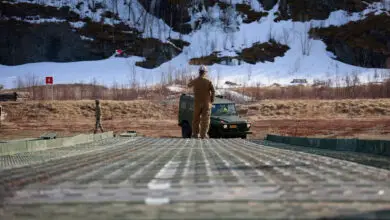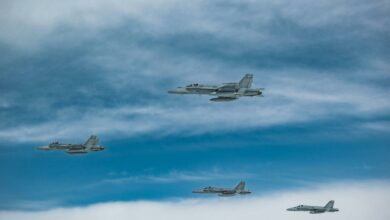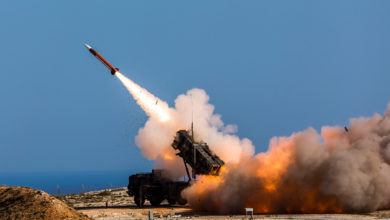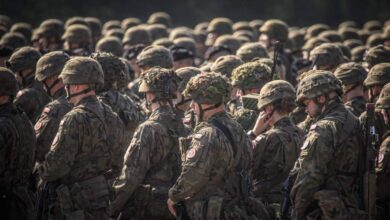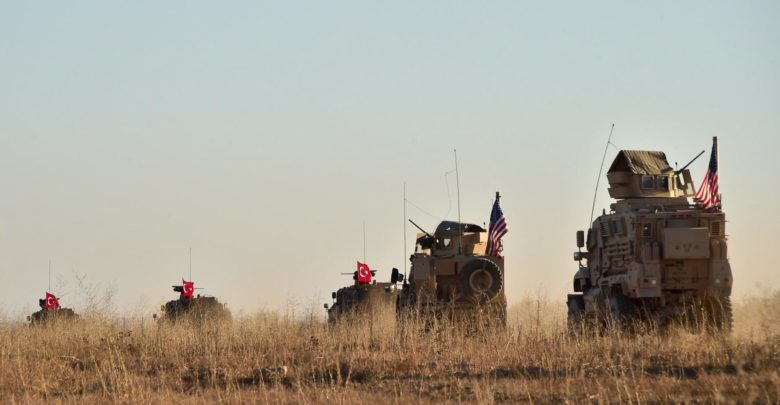
The White House announced on Wednesday, December 21 that American special operators would withdraw from North East Syria after four years of fighting alongside the Syrian Democratic Forces, the military arm of the Syrian Democratic Council. From Kobani, Qamishli, and Hasakah to Raqqa and down the Middle Euphrates River Valley , Islamic State fiercely fought for northeast Syria and were finally deprived of the last remnants of its so-called caliphate when the town of Hajin recently fell to U.S.-backed forces.
The “physical caliphate,” at its height as large as the United Kingdom, is now defeated. ISIS as an insurgency, having gone underground as a clandestine group carrying out assassinations and bombings across Iraq and Syria, is not defeated.
ISIS affiliates abroad from West Africa to southeast Asia remain dangers to global security as well. The ideology that ISIS exhorts is also not defeated, and the “virtual caliphate” that propagates from London to Mosul remains an active threat to peace and stability.
The Trump administration sought to achieve three things through its presence in Syria: The enduring defeat of ISIS, the expulsion of Iranian forces and their proxy groups, and a political settlement to the Syrian civil war that conformed to the Geneva peace talks. It is unclear if these objectives can be accomplished if the United States rapidly withdraws from the theater of conflict without a strategy for what comes next.
The United States did not need to remain in Syria indefinitely to achieve these ends.
An incremental drawdown that includes a strategy to fill the void as the U.S. departs would prove more successful in deterring the threats which result from such a rapid withdrawal.
These threats include a resurgent ISIS, a negotiated settlement between the SDF and the Syrian government, and the tribal elders of northeast Syria aligning with the Syrian government and fomenting its return. The latter two pave the way for the Assad regime to control of Northeast Syria after America departs. The former, an ISIS insurgency that retakes lost ground, would ultimately lead to a regime advance with Russian air support and Iranian ground forces.
The only outcome that can secure leverage for the Global Coalition to Defeat ISIS, and the U.S. if its forces are to withdraw, is a military campaign by the Turkish Armed Forces (TSK), backed by their Syrian rebel allies and Coalition guidance. The SDF alone will not have the means or capability to stand on its own against either Syrian or Turkish forces. Better to back NATO-ally Turkey and enhance a damaged relationship than allow Russia and the Syrian government to invade.
Sanctioning a future Turkish military campaign in North East Syria will have a revitalizing effect on US-Turkey and Turkey-Coalition ties. Endorsing that campaign while the U.S. continued to have a presence on the ground would have created leverage on a number of key points, including when that operation would begin, where the TSK would target, and to what extent territory retaken would be jointly patrolled with the U.S. special operators already familiar with the terrain and tribal dynamics. The latter has been the case in Manbij.
The leverage created by having military forces on the ground would have kept U.S. skin in the game and enabled America to wrap an endorsement of a Turkish advance into a greater rapprochement that included resolving additional outstanding issues, including the development of the TurkStream natural gas project with Russia, Turkish influence in rebel-held Idlib province, the withdrawal of Turkey from the Astana talks, the sale of Russian S-400s (which does appear to now be off the table in favor of U.S. Patriot missiles, at least one gain from the Trump-Erdogan dialogue), and even the extent to which Turkey would manage the tribal and ethnic dynamics in northeast Syria and expand their stabilization funding in the newly occupied areas.
It now seems more likely Turkey will create a buffer zone on its border, rather than taking charge of the Syria portfolio and going to Raqqa with U.S. and Coalition backing. After they are satisfied with their buffer zone, and without a U.S. presence, the Astana pathway to peace may be Erdogan’s next move.
A U.S. withdrawal from northeast Syria is not a surprise, but the rapidity of the drawdown is. An incremental drawdown with a strategy for filling the void as we leave would have enhanced U.S. leverage on the ground. A sudden retreat is just that and leaves the region wide open for a Russian and Iranian-backed advance and the resurgence of ISIS.
 Jack Glore is an MA student in Statecraft and National Security Affairs with a focus on US defense policy and counter-terrorism at the Institute of World Politics in Washington, D.C.
Jack Glore is an MA student in Statecraft and National Security Affairs with a focus on US defense policy and counter-terrorism at the Institute of World Politics in Washington, D.C.
Follow him on Twitter: @Jack_Glore
All views and opinions expressed in this article are those of the author, and do not necessarily reflect the opinions or positions of The Defense Post.
The Defense Post aims to publish a wide range of high-quality opinion and analysis from a diverse array of people – do you want to send us yours? Click here to submit an Op-Ed.



